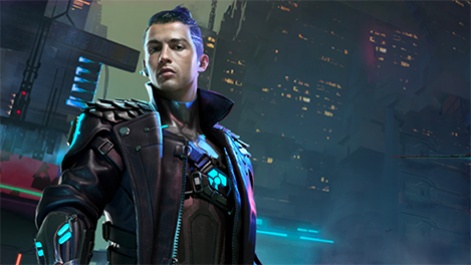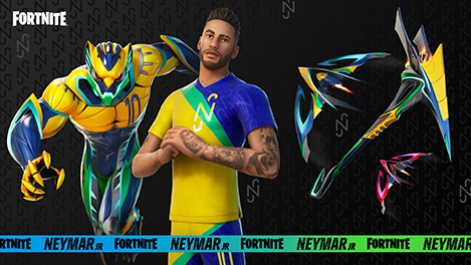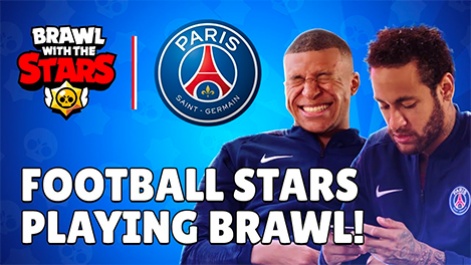It is well-known to Pocket Gamer readers how big mobile gaming has become, with technological developments prompting player numbers to surpass 2.5 billion in 2020.
What may not be as well-known is that similar technological advancements have transformed the football industry.
Powered by a 24/7 multi-platform mix of live games and non-match day lifestyle content, football has evolved into a global media and entertainment business, where the top clubs and players are brands in their own right.
This evolution has made football sponsorship an increasingly attractive proposition for new economy brands seeking to drive global growth and transactions.
In this article, SportQuake CEO Matt House highlights how world leading game developers are capitalising to reach core, casual and novice gamers, before looking at where this trend will take us in the future.
Background: From Early Console Trailblazers to Mobile Gaming Giants
The relationship between football and gaming stretches back to 1998 when EA Sports’ ‘FIFA’ & Konami’s ‘Pro Evolution’ started to invest.
Starting small, these associations have grown to become major, integrated long-term marketing partnerships spanning licensing (teams, players, sports broadcasters), content and branding. For context, EA is now one of football’s top 10 spenders, alongside the likes of Nike, Coca-Cola and Emirates.
Piggybacking on football’s #1 global popularity, the developers sold millions of football video games and, from 2012, were joined by a host of mobile-based challenger titles, who struck similar deals in an effort to replicate this success.
A significant shift came in 2017 as the world’s biggest, non-football related gaming franchises, including Fortnite, Garena Free Fire and Angry Birds, started to invest in football sponsorship.
Up to this point, the formula was self-explanatory: use football to market football games. But what spurred this new mobile gaming x football boom?
A Global Battle For Casual Gamers Attention
According to Limelight’s State Of Online Gaming 2020 report, over 80% of gamers consider themselves either casual or novice players. Developers have recognised the need to look beyond core-gamer focused marketing activity to engage this larger demographic.
To do this, sector leaders are appealing to the group’s wider interests via collaborations in mainstream entertainment mediums, including football. This approach is advancing campaigns beyond traditional gaming circles, delivering culturally significant moments that make casual/novice audiences take notice.
Focusing on football, campaigns have been beneficial in 2 main ways:
Global awareness – Using football’s unique ‘always-on’ global platform to reach new audiences around the world via a constant stream of content on TV, digital, social and offline channels.
Direct monetisation – With in-game revenue streams accounting for 77% of global gaming revenues, developers are leveraging iconic football team and player IP to monetise heightened interest levels, creating high revenue generation opportunities via in-game characters, skins and other promotions.
The world’s biggest developers lead the way
The success of these campaigns is highlighted by the sector leaders who are committing to them. The likes of Epic Games, Garena and Supercell have all engaged in football sponsorship, providing case studies into the range of strategies that are being used to make a big impact.
Garena Free Fire & Cristiano Ronaldo
Just as traditional gaming influencers proved effective in reaching core gamers, developers are now using football ambassadors to reach wider global audiences.
In December 2020, Garena partnered with Cristiano Ronaldo, using the Portuguese star’s position as the most followed person in the world on social media (450m+ followers) to introduce new core, casual and non-gamers to the battle royale title. Garena converted awareness to revenue by integrating Ronaldo into the game as a purchasable character, Chrono.

Fortnite, World Football & Neymar
Committed to ‘thinking as globally as possible’, Fortnite partnered with Neymar as their new brand ambassador, using the player’s popularity and fame to make headlines across the world.
Supplementing this alignment, the developer also struck a licensing deal with 23 global teams, appealing to fan affinity by integrating club IP as in-game skins and allowing users to represent their favourite football teams while they play.

Brawl Stars and PSG
With a world-renowned roster of international talent, Supercell used a club partnership with PSG – and the rich player IP that entailed – to target key regional markets.
Selecting the most relevant players for each territory – e.g. Neymar in Brazil / Kylian Mbappe in France – the localised acquisition strategy accelerated Brawl Star’s userbase in each location. The team’s global popularity also drove significant digital results, with co-branded content receiving 50m+ views on YouTube.

Looking Ahead – What Happens Next?
These examples show how football’s relationship with gaming has developed and how sector leaders are now using football sponsorship to create accountable strategies that deliver tangible results. So what happens next?
As the mobile gaming industry continues to grow at pace, we anticipate more titles will adopt football sponsorship strategies as a way to engage large mainstream audiences 24/7, 365 days a year.
We also expect developers to capitalise on the big branding tool kit that football provides – e.g. shirt sponsorship, pitch-side advertising, digital and social communications – as they maximise the value of the sport’s huge global following (for reference, the Premier League has an annual audience of 3.3bn) as a means to build their brand.
With gameplay innovation central to attracting and keeping users, we see player and team image integration continuing, with long-term partnerships raising and maintaining high standards of gameplay. We also expect similar innovation in wider activations – more crossovers with teams, players as streamers, online fan communities and football-orientated game modes.
In short, we are just getting started. The evolution of football’s ecosystem (new players, global tournaments and competitions) provides endless opportunities for game developers to make an impact and drive results.
Watch this space.
To find out more, visit sportquake.com or contact Patrick McColgan at patrick.mccolgan@sportquake.com

